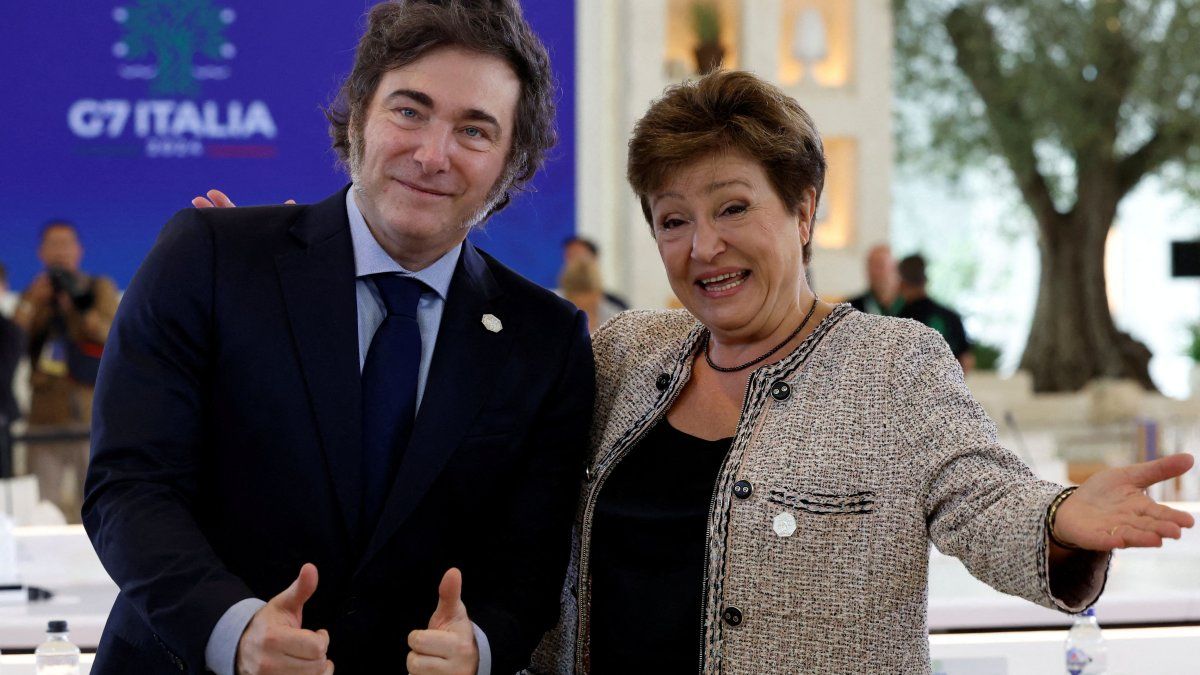The facts that marked the political agenda of the national government during the last days reflect the continuity of the prevailing ideology during their first year of mandate.
Surrounded by a mostly empty enclosure (if it had been a session, Quorum would have not been achieved), President Javier Milei provided his discourse to open the ordinary sessions in the Nation Congress. From our political space we decided our absence in the enclosure within the framework of an Executive Power that has demonstrated its vocation to advance beyond what the Constitution establishes with respect to the division of powers. The lack of budget law for the second consecutive year, the delegated powers and the Decree of necessity and urgency (DNU) 70/23, the adjustment to retirement and the removal of medicines to older adults, cuts in education, health and public works, among others, are examples of decisions of the libertarian government that, for the most part, were not debated in the Parliament of the Nation.
In this sense, once again, in the face of a new indebtedness with the IMF, the National Congress is urged to pay the decisions of the Executive Power. “If this Congress chose not to accompany the national government in this proposal that I extend, know that this will not stop the process of change that the Argentine people entrusted to us. We are going to do it alone, we are going to do it in our own way, but sooner or later we will do it, freeing the battle that must be fought on all fronts to achieve it, ”Milei said in his speech, once again underestimating the role of the legislative power.
However, a few days after saying this, progress was made even more in the exercise of violating the balance of powers of democracy: the Executive Power decided, once again, to use a DNU to establish a “Public Credit Operation” agreement with the IMF “through which the national treasure will cancel existing debt with the Central Bank” resulting in “a total reduction of the public debt”, according to the official statement indicates
A decision that, first, violates the “law to strengthen the sustainability of public debt” sanctioned four years ago in which it is established that “any public credit financing or operation program carried out with the IMF, as well as any expansion of the amounts of these programs or operations, will require a Law of the Honorable Congress of the Nation that expressly approves it”.
But beyond not respecting the current regulations, this new indebtedness, unlike what the official version indicates, raises a change in the composition of the public debt that far from reducing, worsens the conditions of indebtedness. Intraestatal debt is replaced, of the Treasury with the Central Bank, with greater external indebtedness with the IMF, with the conditionalities and terms of the agreement that this implies. An important fact is the interest rate, which is estimated at 6.5% per year and including the surcharge that the fund applies to exceed the quota of financing that Argentina has, as established by the body itself. Recall that this new indebtedness would be added to the one already acquired during the macrista management: about 42 billion dollars to today (the debt is in special rights of rotation –deg- and, expressed in dollars, varies according to their price).
Finally, the fact that an external indebtedness is negotiating is not overlooked despite the fact that the debt expiration schedule with the IMF is not very demanding, since the first capital expiration will be in September 2026 for US $ 776 million. Interest maturity for this year are estimated at US $ 2,560 million (of which US $ 648 million has already been paid last February).
The reality is that currency resources are largely scarce by decisions of the government itself. The month of December (last data available) The eighth consecutive month of deficit was recorded in the current payment balance accountmainly explained by an increase in imports in general and the automotive sector in particular, and the negative result of payments abroad for tourism, among others. To this are added currency expenditures to maintain the value of financial dollars, and what is resigned by the so -called “Blend dollar”.
Given the described situation, it is necessary, more than ever, that from the opposition we increase efforts to enforce the will of the population that chose us so that we are in charge of the legislative power and work for the well -being of the citizenship opposing this type of policies that unfailingly lead us to a place that we already suffered, and to which we do not want to return. The indebtedness conditioned by the IMF through a DNU, the privatization of state companies under the argument of their conversion in SA, the unilateral decision making without the parliamentary debate established by the Constitution, are some of the constitutional precepts that are currently being violated.
National Deputy Union for the Homeland – President Solidarity Party
Source: Ambito
David William is a talented author who has made a name for himself in the world of writing. He is a professional author who writes on a wide range of topics, from general interest to opinion news. David is currently working as a writer at 24 hours worlds where he brings his unique perspective and in-depth research to his articles, making them both informative and engaging.




